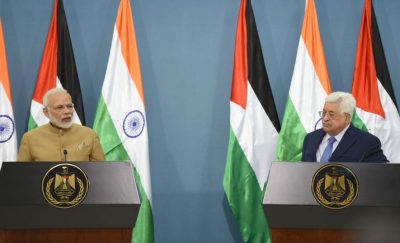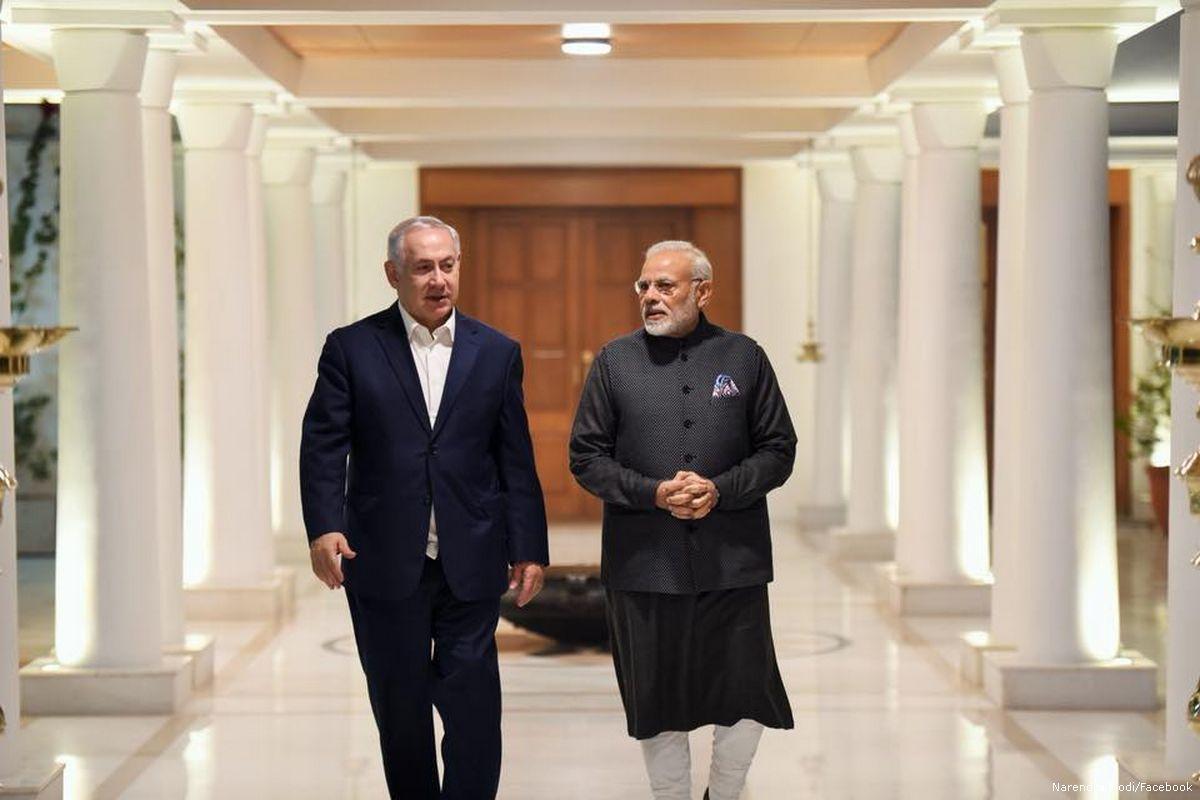Has India Abandoned Palestine?

India has recently voted in support of Israel at the United Nations (UN) for the first time in its post-independence history. At the UN’s Economic and Social Council (ECOSOC) on June 6 she voted with Israel to deny a Palestinian non-governmental organisation (NGO), the Shahed, an observer status.
To many this may appear innocuous. Israel has persuaded India that Shahed is a terrorist organisation and not, as it claims to be, an NGO fighting for the human rights of Palestinians.
But under threat of genocide is not survival contingent upon resistance? Why not give Shahed an observer status? How dangerous can that be?
 Instead, New Delhi chose to break a long standing post-independence position, which is to be on the side of the two-state settlement, viewing both Israel and Palestine as equals. Even before independence, the Mahatma himself had voiced concern about the return of the Jews to Palestine. In a letter to the Jewish-German philosopher, Martin Buber, he asked why the Arabs in Palestine should be evacuated because of a civil war in Europe or a Biblical promise of a National Homeland in Palestine? This was the stand that Jawaharlal Nehru, the first prime minister of India, perpetuated in his foreign policy. He refused to recognise Israel as long as there was no Palestinian state as envisaged in the 1948 demarcation of historic Palestine.
Instead, New Delhi chose to break a long standing post-independence position, which is to be on the side of the two-state settlement, viewing both Israel and Palestine as equals. Even before independence, the Mahatma himself had voiced concern about the return of the Jews to Palestine. In a letter to the Jewish-German philosopher, Martin Buber, he asked why the Arabs in Palestine should be evacuated because of a civil war in Europe or a Biblical promise of a National Homeland in Palestine? This was the stand that Jawaharlal Nehru, the first prime minister of India, perpetuated in his foreign policy. He refused to recognise Israel as long as there was no Palestinian state as envisaged in the 1948 demarcation of historic Palestine.
Netanyahu and Modi (image right)
As such, until recently no diplomatic ties existed between the two countries. Today, however, there is an embassy of Israel in New Delhi.
It was then just a matter of time before a definitive position would surface, a pragmatic one that would consider Indian interests before any moral high ground. But whether Gandhi’s position will be completely abandoned is yet to be seen. Mahatma Gandhi, himself, was not against the notion of a Jewish homeland. He questioned why Palestine, a centuries-old state still very much populated, was the location of choice.
Indeed, currently, supporting Palestinian statehood under the two-state solution is the only ethical way forward for any country . But geopolitical and economic imperatives will, ultimately, be too compelling. India is making strides in economic growth although current trends are indicating a plateauing because the real economy is not growing fast enough to make consumers of the poor, numbering hundreds of millions, who can help propel the Indian economy into the big league. Foregoing opportunities offered by the US and Israel for a socialist-humanitarian stance is looking to be a growing economic burden. India’s flirtation with neo-liberal capitalism under Narendra Modi, while not making a pro-Israel policy preference necessary, an economic partnership with the US, however, necessitates it. That geoeconomically India is an American ally is borne out by New Delhi’s demonetisation exercise. It is a US inspired move often blamed for the economic slowdown now afflicting the country.
Meanwhile, the US under xenophobic and belligerent Donald Trump — who is attempting a feat unsurpassed with regard an apartheid Jewish state on Palestinian soil, promising a “deal of the century” peace plan — is urgently trying to patch together a pro-Israel coalition of disparate nations that will allow the deal to pass with as little fuss as possible, of course, at the expense of the Palestinians who are not being consulted. Moving to the right with a little arm-twisting by Washington, has some political commentators in India applauding. From their viewpoint the past is hypocrisy when all the while India has not stopped talking to Israel, the pace of which gained tempo under Narashimha Rao, India’s 9th prime minister.
While voting in support of Israel is new, India took the first step in a pro-Israel direction in the UN in 2015. Then, New Delhi abstained from voting in the UN Human Rights Council for a resolution critical of Israel. Tel Aviv was being censured for having perpetrated inexcusable violence against the Palestinians during her so-called Operation Protective Edge war on Gaza in 2014. India refused to condemn Israel for slaughtering more than a thousand Palestinians almost half of whom were children!
To friends of Palestine a pro-Israel position appears to be the start of an unholy alliance where ethics and morality are no longer front and centre for India. Security has become the imperative with Israel now the third supplier of military equipment to India after Russia and the US.
More importantly, it is noteworthy that India under Modi is part of the emerging “Quad” of nations — US, Australia, Japan and India — in the Indo-Pacific set up to counter China even while it is part of the Brazil, Russia, India, China, South Africa organisation (BRICS) and the Shanghai Cooperation Organisation (SCO), with China. This foreign policy stance is referred to by Indian commentators as a pro-India policy with priority for Indian interests. The moral high ground vis-a-vis Palestine is being weighed against the demands of self-interest.
The point is for Palestine there is no way other nations can support her effectively outside of the United Nations given that the state has effectively been legally disappeared. Until a solution is afforded to her in the way of a state restored, Palestine can only be supported within the UN construct. As such a pro-Israel move in the UN, such as India’s, is a dramatic shift in foreign policy, a move which cannot act as precedent for other Palestine-friendly countries.
It cannot be denied that India must look after her citizens first. But consequences of such and similar actions in the UN cannot be ignored.
For all its seeming impotence, the UN is a world body. Through it the voice of every member nation be they rich or poor, large or small, powerful or weak can be heard. For this reason, for Palestine, it is an enormous disadvantage when friends desert them. Palestine needs the support of friendly nations in the UN in the struggle for a state. Palestine was stolen from under the feet of its people. The time has come for Palestine to be returned to Palestinians for which supporting the Palestinian war of resistance is obligatory.
And, human decency dictates that any move supporting the position of a terrorist state, which Israel indisputably is, and an occupying power too, is not merely morally reprehensible but unethical and just plain wrong.
*
Note to readers: please click the share buttons above or below. Forward this article to your email lists. Crosspost on your blog site, internet forums. etc.
Askiah Adam is Executive Director of the International Movement for a JUST World (JUST).
Featured image is from India TV

